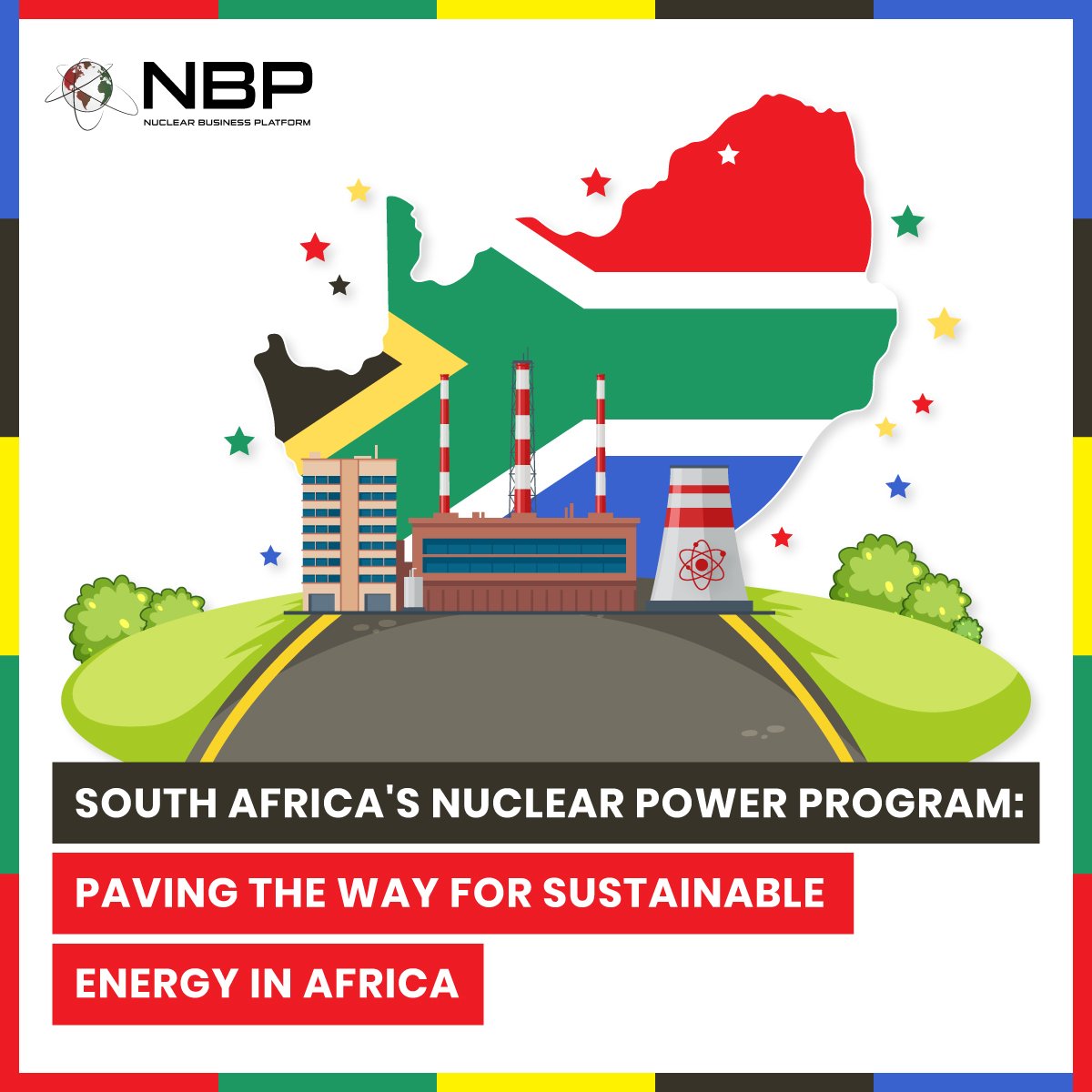South Africa's Nuclear Power Program: Paving the Way for Sustainable Energy in Africa
Mr. Katse Maphoto, Chief Director of Nuclear Safety and Technology in the Department of Mineral Resources and Energy of South Africa, provided valuable insights into South Africa's Nuclear Power Program and its implications for the broader African energy landscape in the Africa Nuclear Business Platform Lite held in September 2023. The South African experience underscores the importance of a collaborative and multilateral approach to secure a sustainable energy future.
In 1998, South Africa initiated a significant shift in its energy policy with the White Paper on Energy, focusing on diversifying the energy mix and transitioning towards a low-carbon economy. This transformative vision set the stage for South Africa's journey into the realm of nuclear energy.
The Nuclear Energy Policy of 2008 articulated a clear vision to harness nuclear energy for peaceful purposes, emphasizing the development of an extensive nuclear program with long-term goals and self-sufficiency in the nuclear fuel cycle value chain.
Fast forward to 2019, the Integrated Resource Plan reiterated the importance of preparing for a nuclear build program, allocating 2500MW of nuclear capacity. This decision was grounded in the recognition that nuclear energy constitutes a clean and indispensable source of base load power, vital for the long-term stability of the energy grid.
Africa, as a whole, has lagged behind in nuclear power capacity, with only 2GW as of 2018. This gradual growth stands in stark contrast to global trends, highlighting the need for accelerated development.
The 2014 International Panel on Climate Change Report reinforced nuclear energy's status as a clean energy source, positioning it favorably among other renewable sources. The Clean Energy Ministerial and the IAEA conference on climate change also recognized nuclear energy's role in clean and flexible energy integration. Over 44 countries, including the European Union, recognize the pivotal role of nuclear energy in achieving net-zero emissions by 2050. To meet this ambitious target, an average of 17GW of nuclear capacity must be deployed annually.
Nuclear power offers reliability, stability, and continuous base load power to meet growing demand, making the electricity grid robust. As South Africa plans to decommission a significant portion of coal capacity (24100 MW) by 2030, the replacement thereof with large share of renewables will bring instability to the electricity grid. It is fact that, replacement of the coal base load power with Intermittent renewable power technologies will not yield the same result as replacing it with base load nuclear power. SMR could be well suited to replace retired coal plants.
Economically, nuclear energy boasts lower fuel costs, price stability, and higher capacity factors compared to conventional fossil electricity generation. The extension of the Koeberg Nuclear Power Plant's life to 40-60 years which would also extend the price stability to the consumer from essentially the same asset for a further 20 years. Moreover, nuclear programs create substantial employment opportunities, spanning from construction to decommissioning and radioactive waste management.
South Africa's Nuclear New Build Programme Implementation (NNBP) follows a phased approach, promoting transparency and governance, starting with the Request for Information(RFI) for the 2500MW NNBP, then the issuance of Request for proposal(RFP) and followed by the development of governance framework and the robust procurement of the NNBP.
To foster sustainable development, nuclear energy should be integrated into Green Taxonomy policies, recognizing its socio-economic contributions and alignment with UN Sustainable Development Goals.
Regarding rural electrification and to make the electricity accessible to the interiors, Eskom had conducted and Environmental Integration Assessment (EIA) and located suitable sites regarding the nuclear development. 2 preferred sites have been pinpointed one close the Koeberg site and Thyspunt.
In conclusion, South Africa's Nuclear Power Program serves as a beacon for sustainable energy development in Africa and beyond. The path forward demands a multilateral approach, cooperation, and transparency to build a cleaner, more secure energy future for all.




